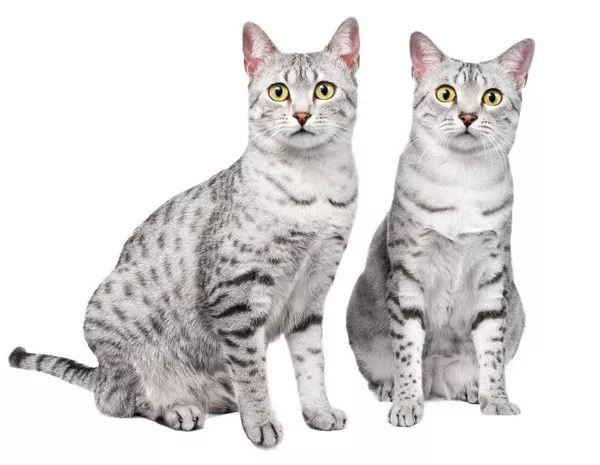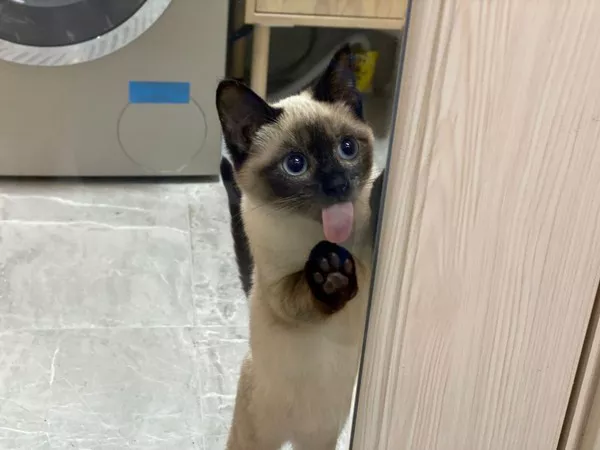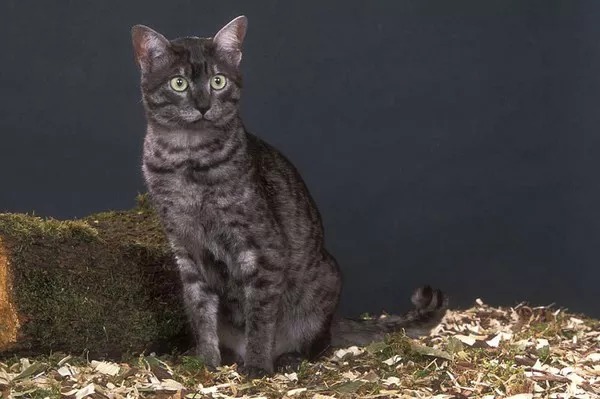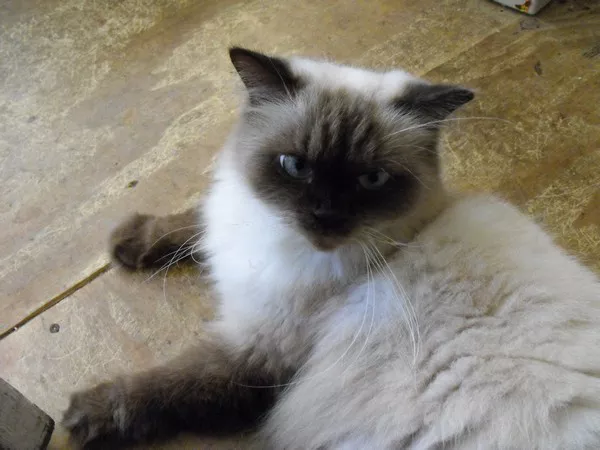Egyptian Mau cats are known for their striking appearance, athletic build, and above all, their vocal nature. These elegant felines are not shy about expressing themselves, often communicating with their owners through a variety of vocalizations. In this article, we’ll explore the talkative nature of Egyptian Mau cats, delve into the reasons behind their vocalizations, and provide training tips for fostering effective communication with your beloved Mau companion.
Egyptian Mau Cats
Egyptian Mau cats are an ancient and revered breed, believed to have originated in Egypt thousands of years ago. Renowned for their distinctive spotted coat, expressive green eyes, and sleek, muscular physique, Maus are considered one of the oldest domestic cat breeds in the world.
In addition to their striking appearance, Egyptian Mau cats are known for their sociable and outgoing personalities. They are highly intelligent, curious, and affectionate cats that form strong bonds with their human companions. However, one of the most notable characteristics of Mau cats is their talkative nature, as they are known to communicate through a wide range of vocalizations.
Understanding the Talkative Nature of Egyptian Mau Cats
Egyptian Mau cats are inherently vocal creatures, using a variety of sounds to express their needs, desires, and emotions. From soft chirps and trills to loud meows and yowls, Maus are not shy about making their voices heard.
There are several reasons why Egyptian Mau cats may be more talkative than other breeds:
Breed Characteristics: Egyptian Maus are known for their high energy levels and active nature. As natural hunters and explorers, they are constantly on the move, seeking out stimulation and adventure. Their vocalizations may be a way of expressing their excitement, curiosity, or desire for interaction with their owners.
Social Nature: Mau cats are highly social animals that thrive on companionship and interaction. They enjoy being in the company of their human family members and often use vocalizations to communicate and engage with them. Meowing and chirping may be their way of seeking attention, affection, or playtime.
Attention-Seeking Behavior: Like many cats, Egyptian Maus are masters of manipulation and may use vocalizations as a means of getting what they want. Whether it’s asking for food, attention, or access to a favorite spot, Maus are not above using their voices to manipulate their owners into meeting their needs.
Emotional Expression: Cats, including Egyptian Maus, are capable of experiencing a wide range of emotions, from happiness and contentment to anxiety and frustration. Vocalizations may be their way of expressing these emotions and seeking comfort or reassurance from their owners.
Training Tips for Effective Communication with Egyptian Mau Cats
While Egyptian Mau cats may be naturally talkative, there are ways to foster effective communication and strengthen the bond between you and your feline companion. Here are some training tips for understanding and responding to your Mau cat’s vocalizations:
Learn Their Language: Take the time to observe and familiarize yourself with your Mau cat’s vocalizations. Pay attention to the different sounds they make and the context in which they occur. For example, a soft chirp may indicate curiosity or excitement, while a loud meow may signal hunger or discomfort.
Respond Appropriately: When your Mau cat vocalizes, respond to them in a calm and reassuring manner. Acknowledge their vocalizations with verbal praise, affectionate touches, or interactive play sessions. By responding to their cues, you reinforce positive communication and strengthen your bond with your cat.
Establish Routine: Establishing a consistent feeding, play, and grooming routine can help alleviate anxiety and reduce excessive vocalizations in Mau cats. Stick to a regular schedule for feeding, playtime, and cuddle sessions to provide structure and predictability in their daily lives.
Provide Enrichment: Egyptian Mau cats are highly intelligent and active animals that thrive on mental and physical stimulation. Provide plenty of enrichment opportunities, such as puzzle toys, interactive games, and vertical climbing spaces, to keep them engaged and entertained. Mental and physical stimulation can help reduce boredom and decrease excessive vocalizations.
Address Underlying Needs: If your Mau cat’s vocalizations seem excessive or out of the ordinary, it’s essential to address any underlying needs or issues they may be experiencing. Ensure they have access to fresh water, a clean litter box, and a comfortable environment free of stressors. If vocalizations persist, consult with your veterinarian to rule out any medical conditions or behavioral issues.
Conclusion
Egyptian Mau cats are renowned for their striking appearance, sociable nature, and above all, their talkative personalities. Their vocalizations serve as a means of communication, expressing their needs, desires, and emotions to their human companions. By understanding the reasons behind their vocalizations and responding appropriately, you can foster effective communication and strengthen the bond between you and your beloved Mau cat. With patience, consistency, and plenty of love and affection, you can enjoy a rewarding relationship with your talkative Egyptian Mau companion for years to come.
























